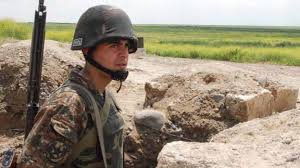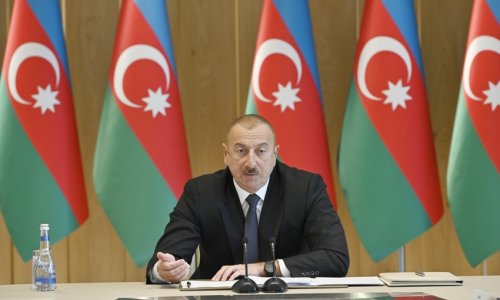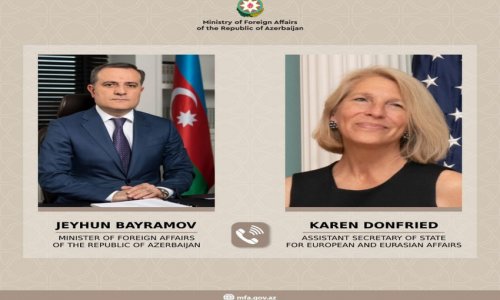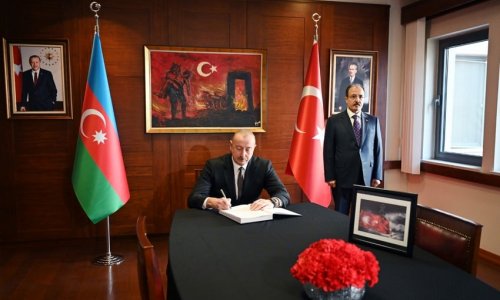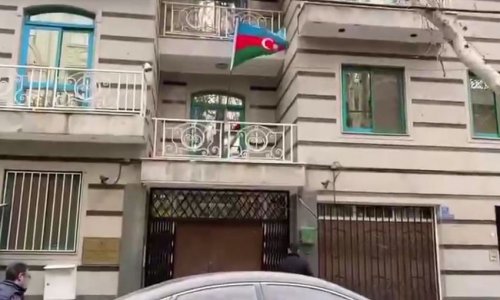Azerbaijan’s breakaway region of Nagorno-Karabakh went to the polls on May 3 to elect a new parliament, in a vote that has triggered fears of renewed violence in an area criss-crossed by key oil and gas pipelines.
The election is the sixth held since the 149,000-strong enclave - which occupies a fertile highland plateau wedged between the Caspian Sea, the Black Sea and the Little Caucasus Mountains - first called for independence from Azerbaijan in 1988.
Smouldering violence in the dying days of the Soviet Union erupted into full-scale war between Armenia and Azerbaijan in 1992, and by the time a ceasefire was agreed in May 1994 some 30,000 had died. Since then the dispute has languished in a frozen state of no peace, no war.
The ethnic-Azerbaijani community — which before the war made up around 25% of the region’s population — was entirely driven out during the conflict and today Nagorno-Karabakh is almost entirely ethnic Armenian.
Armenian troops defend the region, plus five neighbouring districts in Azerbaijan, which were seized as a "buffer zone” around Nagorno-Karabakh’s borders.
Yerevan does not recognize Nagorno-Karabakh’s independence claim, but leaders of Armenia and the breakaway region pledged that the ballot would be free and fair, insisting that they were held in line with international standards and monitored by both national and international observers.
Both energy-rich Azerbaijan, which is awaiting thousands of sportsmen and women for the first ever European Games in June, and its close ally Turkey said the vote was illegal. The European Union and the United States echoed Baku and confirmed that they did not recognise the legal framework within which the elections were being held.
Clashes between Azerbaijani and Armenian forces have escalated this year following an unprecedented spiral of violence in 2014. However, analysts such as Michael Cecire, associate scholar at the US-based Foreign Policy Research Institute, argue that the vote by itself does not increase the risks of war.
"Escalation along the line of contact is already a fact, not a hypothetical outcome,” he told bne IntelliNews. "It is this trajectory of increasing violence that is particularly worrisome, as well as each side’s attendant unwillingness to step back from the brink. The June European Games in Baku may defer some conflict, but as Sochi in 2014 demonstrated, it is not in itself necessarily an impediment to future conflict. In fact, it could be even used by the host station as a means to ‘bank’ influence ahead of a military operation.”
For its part, the OSCE-chaired Minsk Group, as the sole diplomatic mediators of the Karabakh conflict, stated that "[we do] not accept the results of these ‘elections’ as affecting the legal status of Nagorno-Karabakh”, but added that "in the context of a comprehensive settlement of the conflict, we recognise the role of the people of Nagorno-Karabakh in deciding their future”.
As Azerbaijan insists on the full return of all occupied territories and Armenia wants recognition of the January 1992 declaration of independence in Nagorno-Karabakh, the Minsk Groups has struggled to move beyond the 1994 ceasefire agreement.
Richard Giragosian, founder of the Yerevan-based Regional Studies Centre (RSC), sees the future of the peace process as still "fairly bleak” as "the two parts are simply too far apart”.
"The current state of the peace process is limited to a ‘back to basics’ policy, with two main objectives: to maintain the Armenian-Azerbaijani dialogue on the presidential and ministerial levels and to prevent the outbreak of hostilities while strengthening the cease-fire regime,” explains Giragosian. "At the same time, the Minsk Group is coming under increasing pressure from some European states to allow a greater or more direct role for the European Union in the mediation effort, and to seek new ways to bolster the peace process.”
A wider outbreak of hostilities worries the West beyond the inevitable instability it would create in the South Caucasus. Renewed full-scale violence would threaten the energy infrastructure around Azerbaijan, the former Soviet Union's third-largest oil producer which provides the only supply to Europe for central Asian oil and gas that bypasses Russia.
The BP-led Baku-Tbilisi-Ceyhan (BTC) oil pipeline runs through territory about 96 kilometres from the ceasefire line and in 2013 Azerbaijan signed contracts worth €40bn to supply gas via 4,000 kilometres of pipelines connecting Baku to southern Italy through Georgia, Turkey, Greece, and Albania.
Azerbaijan has used its energy wealth to strengthen its military and forge alliances with the West, although Baku’s poor human rights track record has soured relations. Its multi-billion dollar rearmament program made it Europe’s second-biggest weapons importer in the past five years at 13% of total purchases, according to a recent report by the Stockholm International Peace Research Institute (Sipri). In 2015 Baku increased its military spending by 27% to $3.6bn, exceeding Armenia’s total annual budget. For its part Armenia is a member of a Russian-led mutual defence group and hosts a sizeable Russian military base. Still, according to Sipri’s report, 85% of Azerbaijan’s arms import was signed off by Moscow.
"While Russia does have numerous reasons for not wanting to see another conflict between Armenia and Azerbaijan, to both of which it has become increasingly close in recent years, Moscow would shed few tears about disrupting the South Caucasus as a viable alternative energy transit corridor,” Cecire says.
Cecire hasn’t lost hope in the Minsk Group, but believes that ultimately its success is "more about willpower” in Armenia and Azerbaijan.
"Both states have much to lose, but there may be growing feelings on both sides that fighting a war sooner may be preferable to deferring an ‘inevitable’ war later. We may be approaching a point where the Minsk Group’s chief objective is not so much to broker a permanent settlement as to minimise the risk of an all-out war.”
(bne.eu)
www.ann.az
Follow us !

